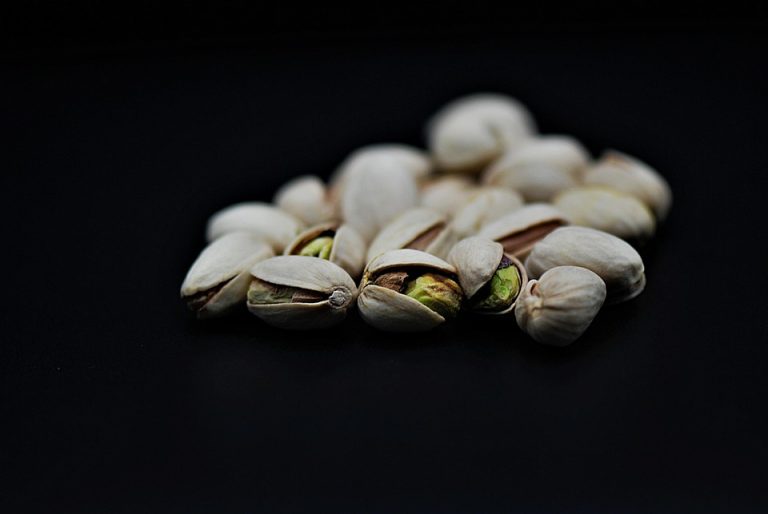Did you know that nearly 54 million Americans are at risk of osteoporosis, a condition that weakens bones and makes them more likely to fracture? That’s a staggering statistic, and it highlights the importance of maintaining strong bones throughout life. While many of us think of calcium as the primary nutrient for bone health, there’s a whole world of superfoods that can help fortify our skeletal system. Among these, spinach stands out not just for its versatility but also for its impressive nutrient profile.
So, let’s dive into five superfoods that can help boost bone strength, with a special spotlight on the leafy green that Popeye swore by—spinach!
Contents
1. Spinach: The Green Giant of Bone Health
Spinach is often touted as a superfood, and for good reason. This leafy green is packed with vitamins and minerals that contribute to bone health, including vitamin K, calcium, magnesium, and potassium.
Nutritional Breakdown
- Vitamin K: Essential for bone metabolism and helps in calcium absorption. A single cup of cooked spinach provides about 987% of the daily recommended intake of vitamin K.
- Calcium: While it’s not as high in calcium as dairy products, spinach still contains a decent amount—about 30 mg per cup cooked.
- Magnesium: Important for converting vitamin D into its active form, which in turn helps your body absorb calcium.
Pros and Cons
Pros: Spinach is versatile; you can throw it in salads, smoothies, or even pasta dishes. Plus, it’s low in calories, making it a great addition to any diet.
Cons: Spinach contains oxalates, which can bind to calcium and hinder its absorption. This means that while spinach is nutritious, it’s best consumed alongside other calcium-rich foods.
2. Almonds: Tiny Powerhouses for Bone Density
Almonds may be small, but they pack a big punch when it comes to bone health. These nuts are rich in calcium, magnesium, and vitamin E, which are all vital for maintaining strong bones.
Nutritional Breakdown
- Calcium: A 1-ounce serving (about 23 almonds) contains around 76 mg of calcium.
- Magnesium: Almonds are also a fantastic source of magnesium, with about 76 mg per ounce.
Pros and Cons
Pros: Almonds are easy to snack on and can be added to various dishes, from salads to desserts. They also contain healthy fats, which can support overall health.
Cons: They’re calorie-dense, so moderation is key. Overindulging could lead to unwanted weight gain.
3. Salmon: The Omega-3 Champion
Fatty fish like salmon are not only delicious but also loaded with omega-3 fatty acids, which have anti-inflammatory properties.
Nutritional Breakdown
- Vitamin D: Salmon is one of the few natural food sources of vitamin D, which is crucial for calcium absorption.
- Omega-3 Fatty Acids: These help reduce inflammation, which can indirectly support bone health.
Pros and Cons
Pros: Salmon is incredibly versatile; you can grill it, bake it, or even make sushi. Plus, its healthy fats promote heart health.
Cons: Some people may have concerns about mercury levels in fish. Opt for wild-caught salmon to minimize this risk.
4. Fortified Tofu: A Plant-Based Calcium Source
For those following a plant-based diet, tofu is an excellent source of calcium, especially when it’s fortified.
Nutritional Breakdown
- Calcium: Depending on the brand and how it’s made, a half-cup serving of tofu can contain anywhere from 200 to 400 mg of calcium.
- Protein: It’s a great source of plant-based protein, which is also essential for bone health.
Pros and Cons
Pros: Tofu can be used in a variety of dishes, from stir-fries to smoothies. It’s also an excellent option for vegans and vegetarians.
Cons: Some people may be allergic to soy, so it’s important to be cautious if you haven’t tried it before.
5. Sweet Potatoes: More Than Just a Side Dish
Sweet potatoes are not just a delicious comfort food; they’re also packed with nutrients that support bone health.
Nutritional Breakdown
- Vitamin A: Sweet potatoes are rich in beta-carotene, which the body converts to vitamin A, vital for bone health.
- Potassium: A medium sweet potato contains about 540 mg of potassium, which helps in maintaining bone density.
Pros and Cons
Pros: They’re versatile and can be baked, mashed, or made into fries. Plus, they’re high in fiber, which aids digestion.
Cons: Sweet potatoes are higher in carbohydrates compared to other vegetables, so portion control is important if you’re watching your carb intake.
Spinach Power: A Closer Look
Now that we’ve explored some fantastic superfoods, let’s take a deeper dive into spinach.
Spinach and Bone Health: The Evidence
A study published in the Journal of Nutrition found that higher intakes of vitamin K were associated with better bone mineral density in older adults (Booth et al., 2013). This reinforces the idea that spinach can play a crucial role in maintaining bone strength.
Creative Ways to Incorporate Spinach
- Smoothies: Blend spinach with bananas, yogurt, and a splash of almond milk for a nutrient-packed breakfast.
- Salads: Toss fresh spinach with nuts, fruits, and a light vinaigrette for a refreshing salad.
- Soups: Add cooked spinach to your favorite soups for an extra nutrient boost.
- Pasta: Mix spinach into your pasta dishes for added flavor and health benefits.
FAQs
1. Can I get enough calcium from spinach alone?
While spinach contains calcium, its oxalate content can hinder absorption. It’s best to combine spinach with other calcium-rich foods for optimal benefits.
2. How often should I eat these superfoods for bone health?
Incorporating a variety of these superfoods into your diet several times a week is a good strategy for maintaining bone health.
3. Are there any risks associated with consuming too much spinach?
Yes, excessive spinach consumption can lead to an oxalate buildup, which may contribute to kidney stone formation in susceptible individuals.
4. Can exercise help improve bone strength?
Absolutely! Weight-bearing exercises, such as walking, running, and strength training, are crucial for building and maintaining bone density.
Conclusion
Maintaining strong bones is essential for a healthy and active life, especially as we age. While calcium might often steal the spotlight, it’s clear that a variety of superfoods—including our leafy green hero, spinach—play a vital role in bone health. By incorporating these nutrient-rich foods into your diet, you can take proactive steps toward strengthening your bones and enhancing your overall well-being.
Remember, it’s always wise to consult with healthcare professionals before making significant changes to your diet. Research is ongoing, and while results are promising, individual needs can vary.
This article is for educational purposes only and is not a substitute for professional medical advice. Always consult a qualified healthcare provider before making changes to your health routine.
References
- Booth, S. L., et al. (2013). Vitamin K and Bone Health: A Review. Journal of Nutrition, 143(12), 2018-2026. https://doi.org/10.3945/jn.113.177751
- Harvard Health Publishing. (2020). Calcium and Bone Health: Is Calcium Supplementation Necessary? https://www.health.harvard.edu/staying-healthy/calcium-and-bone-health
- Mayo Clinic. (2021). Osteoporosis: Diagnosis and Treatment. https://www.mayoclinic.org/diseases-conditions/osteoporosis/diagnosis-treatment/drc-20349705
Get Your FREE Natural Health Guide!
Subscribe now and receive our exclusive ebook packed with natural health tips, practical wellness advice, and easy lifestyle changes, delivered straight to your inbox.




